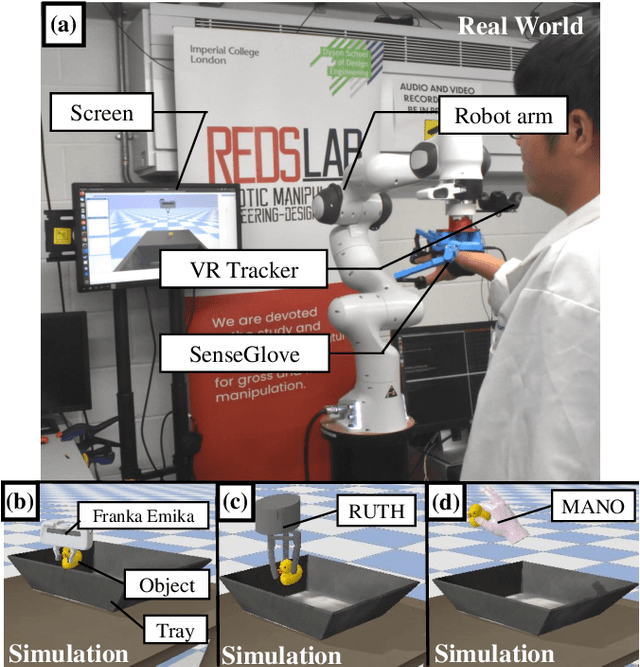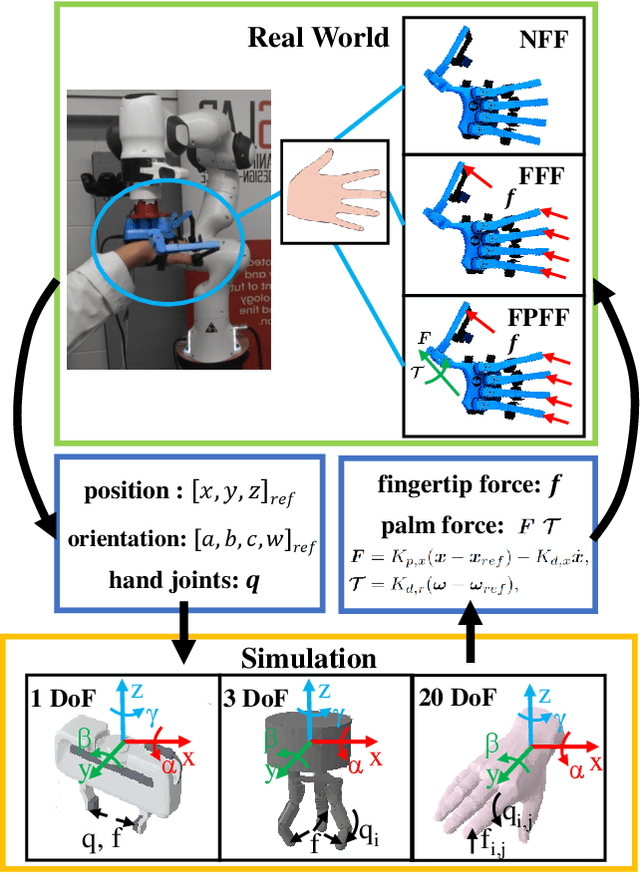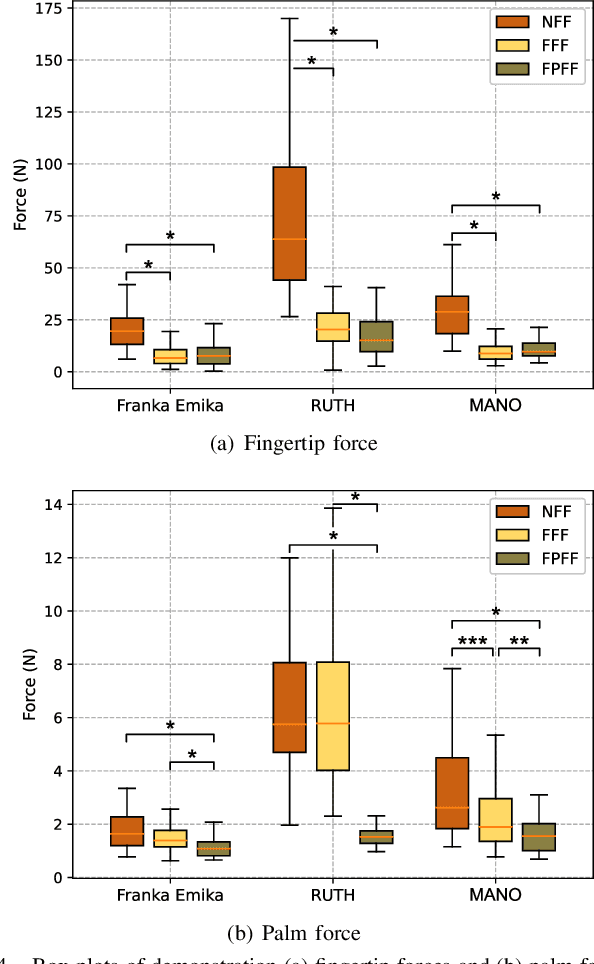Immersive Demonstrations are the Key to Imitation Learning
Paper and Code
Jan 22, 2023



Achieving successful robotic manipulation is an essential step towards robots being widely used in industry and home settings. Recently, many learning-based methods have been proposed to tackle this challenge, with imitation learning showing great promise. However, imperfect demonstrations and a lack of feedback from teleoperation systems may lead to poor or even unsafe results. In this work we explore the effect of demonstrator force feedback on imitation learning, using a feedback glove and a robot arm to render fingertip-level and palm-level forces, respectively. 10 participants recorded 5 demonstrations of a pick-and-place task with 3 grippers, under conditions with no force feedback, fingertip force feedback, and fingertip and palm force feedback. Results show that force feedback significantly reduces demonstrator fingertip and palm forces, leads to a lower variation in demonstrator forces, and recorded trajectories that a quicker to execute. Using behavioral cloning, we find that agents trained to imitate these trajectories mirror these benefits, even though agents have no force data shown to them during training. We conclude that immersive demonstrations, achieved with force feedback, may be the key to unlocking safer, quicker to execute dexterous manipulation policies.
 Add to Chrome
Add to Chrome Add to Firefox
Add to Firefox Add to Edge
Add to Edge